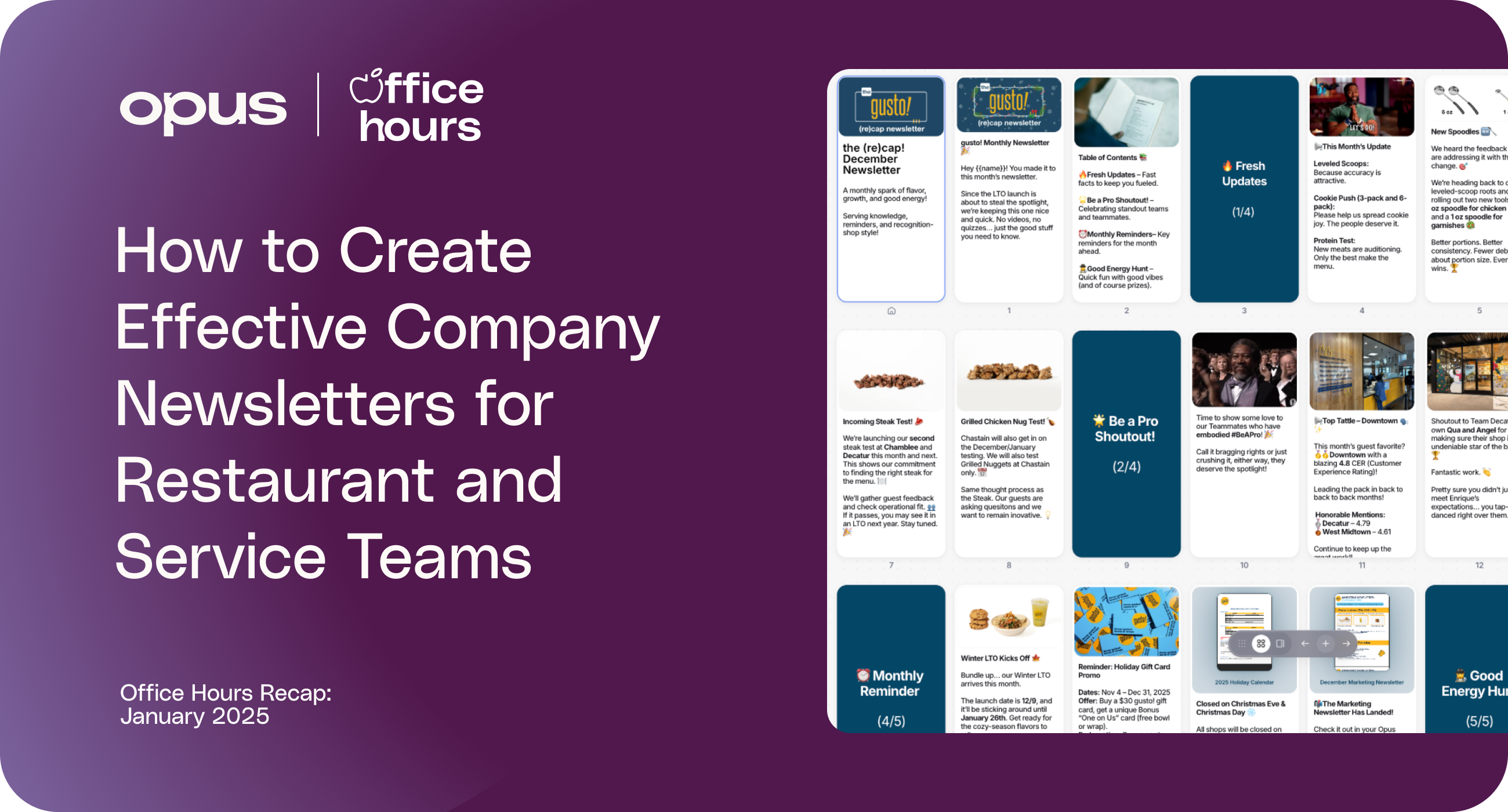We sat down with training director Marletha Booker to get her perspective on the world of restaurant training. Marletha has recently started a new role which oversees learning and development within the retail food industry. She has over 15 years of experience in the hospitality industry and almost 7 in the restaurant learning space.
How has training changed since you joined the industry?
Within the past few years, training has changed drastically. Many companies were challenged to take their long, content-rich training and make them more palatable with microlearning. Another thing that has changed is the reliance on physical training manuals and documents. Those were replaced with more technology-driven options.
How do you use technology to aid training and make it personable?
I love making webinars “exclusive” to the first 20 people who sign up or are limited to a specific location. This alleviates some of the pressure for attendees because it’s a smaller group and sometimes participants already know each other and are more apt to be open. I’m also excited to begin integrating an online text message polling system into more live training. That way, it keeps everyone interested and they can vote for something anonymously from their phone.
How is training for restaurants unique?
Great question! My initial thought was the limited amount of time to conduct training, but I think every industry would say that. I don’t know that it’s to the same degree as a restaurant, but I won’t use that one.
I believe a huge difference for hospitality training is the diversity of the audience being served. This industry has one of the most diverse workforces and that’s a beautiful thing!
Those differences can include geographic location, age, language, and education level - to name a few.
With so many factors that hospitality trainers must consider, it becomes a priority to ensure everyone is receiving the training they need to guarantee service standards are maintained, but also to ensure an equitable and inclusive workplace.
There’s a misconception that the foodservice industry is easy and the work is very simple (anyone can do it), but the truth is that it's very complex which makes training and development essential for success.
How does technology influence training culture?
Absolutely! Training is an area that for many years, people dreaded or participated in reluctantly. By using technology, training professionals are able to provide engaging content that simulates what learners see on a daily basis with social media or apps. As a result, learners are more interested and involved; they retain information quicker and longer, and they don’t mind revisiting training when necessary. Offering engaging content is crucial and technology facilitates that.
What is your training approach for new hires?
Onboarding is arguably the most important time in an employee’s tenure. My approach is to focus on making people feel welcome and setting them up for success with all the resources and tools they need.
In what ways does training promote employee retention?
There is a critical link between effective training and employee retention. It begins with onboarding and extends throughout an employee’s tenure.
When a company chooses not to prioritize the learning and development of its teams, they are essentially saying they don’t care if employees stay. Today’s workforce has an expectation that employers invest in their growth, learning, and career development. Therefore, those factors are significant when considering retaining and attracting employees.
What is your advice to future L&D professionals?
I would offer three pieces of advice. One, remain flexible. Learning styles differ and training trends come and go, so be open to changing your technique or approach to training. Two, track metrics for everything. In order to know how well your learning strategy is working, you need to know where you started. Three, remember the profession and maintain a teachable spirit. You can learn something from anyone, at any time.
What are your predictions for the future of training new hires at restaurants?
1. Peer to Peer Learning
In the past two years, I have really leaned into peer-to-peer learning and I believe during the next few years, it will really take off particularly in restaurants. It’s more than pairing a new employee with a more seasoned one. It’s about creating engaged advocates to ensure the training that’s been created is actually being executed. It provides a leadership development opportunity for those selected to be responsible for training.
2. Redefining Training Formats
I predict that learning will be redefined. After two years and counting of COVID-19, learners are tired of Zoom. They’re tired of specific handed-down required training. Now is the time to redefine learning and remind everyone that it takes place daily, in so many forms! When someone uses Google, they are actively involved in learning; when someone listens to a podcast, they are learning something. I predict learning formats will change to make finding content easier and in formats that learners prefer.







